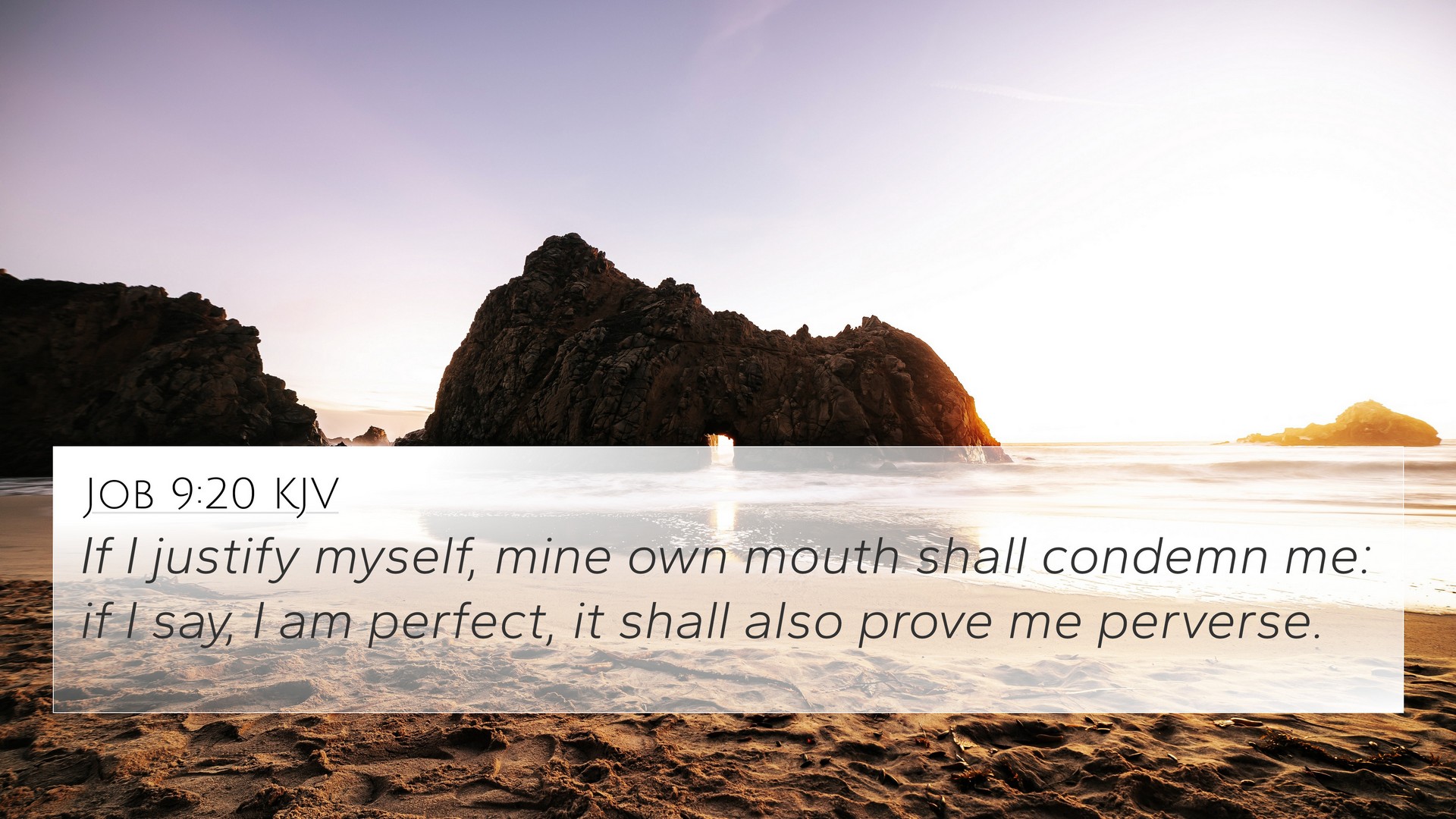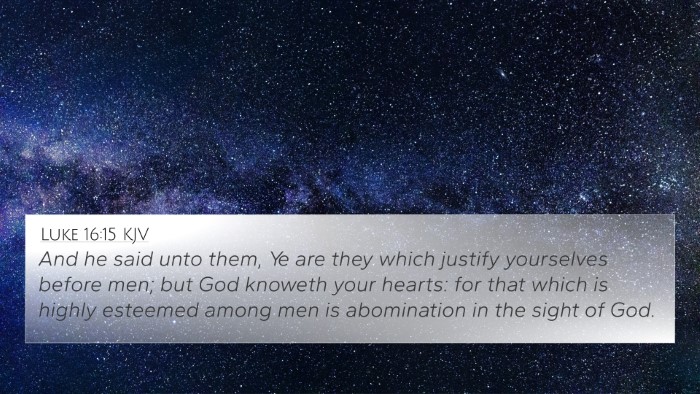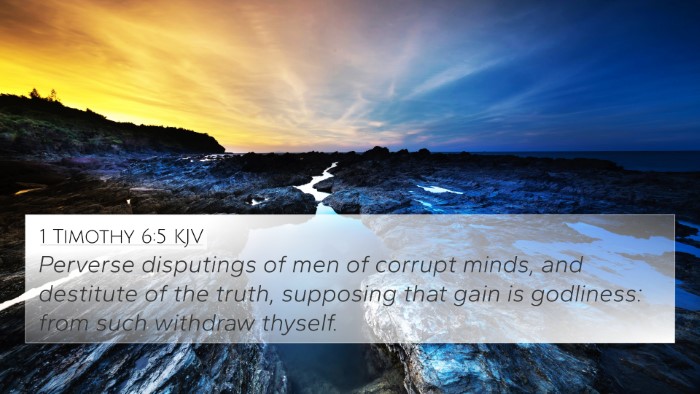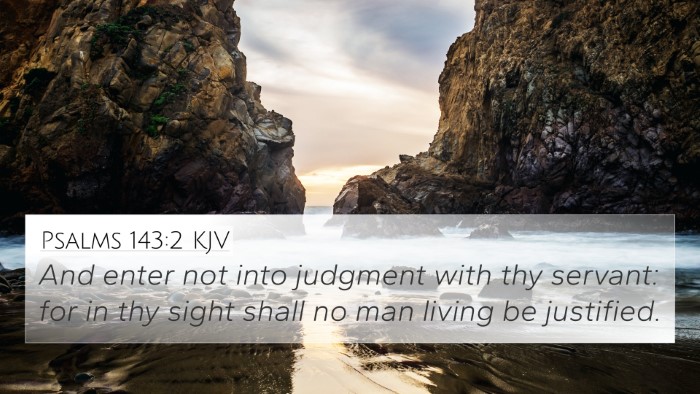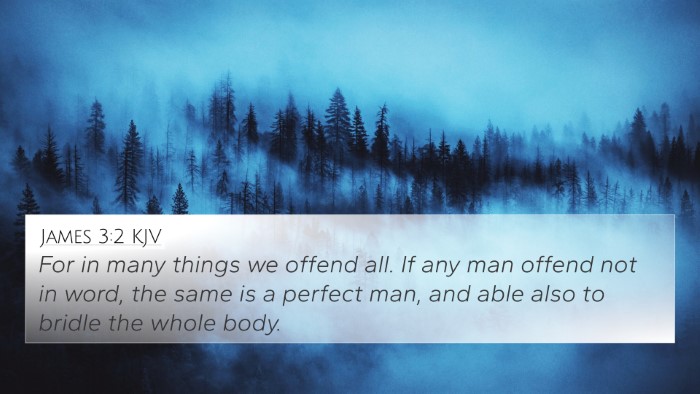Understanding Job 9:20
The verse Job 9:20 reads:
"If I justify myself, my own mouth shall condemn me: if I say, I am perfect, it shall also prove me perverse."
Summary of the Verse
This verse conveys Job's awareness of the futility of self-justification before God. It illustrates his understanding that regardless of his own assessment of his righteousness, he remains subject to God's judgment.
Insights from Commentaries
-
Matthew Henry: Henry emphasizes Job's realization that a mere claim of righteousness cannot silence the conscience or the accusations from God. Job recognizes that any declaration of self-perfection only serves to expose his flaws further.
-
Albert Barnes: Barnes notes that Job articulates the paradox of human judgment. Even if Job were to claim his innocence, such declarations lead to greater scrutiny. The complexity of his situation reflects a deep understanding of God's omniscience and justice.
-
Adam Clarke: Clarke highlights the profound despair in Job's tone, indicating that Job believes he cannot plead his case without revealing his imperfections. It speaks to the human condition's integrity before divine scrutiny, where self-claims often crumble under divine truth.
Thematic Connections and Cross-References
Job 9:20 connects to various themes in Scripture around self-justification, the nature of sin, and the greatness of God. Below are notable cross-references:
- Romans 3:10: "As it is written, There is none righteous, no, not one." This reinforces the idea that self-perception of righteousness is incorrect before God's law.
- Isaiah 64:6: "But we are all as an unclean thing, and all our righteousnesses are as filthy rags." This further emphasizes the insufficiency of human righteousness.
- Psalms 143:2: "And enter not into judgment with thy servant: for in thy sight shall no man living be justified." This reflects a similar concern that human beings cannot stand before divine judgment.
- James 2:10: "For whosoever shall keep the whole law, and yet offend in one point, he is guilty of all." This highlights the totality of God's law and the failure of any individual to claim flawless adherence.
- Matthew 7:1-2: "Judge not, that ye be not judged. For with what judgment ye judge, ye shall be judged." This warns against self-judgment and the implications it carries.
- Proverbs 16:2: "All the ways of a man are clean in his own eyes; but the LORD weigheth the spirits." This shows how subjective human evaluation contrasts with God’s evaluation.
- Galatians 6:3: "For if a man think himself to be something, when he is nothing, he deceiveth himself." This warns against self-deception regarding one's own moral state.
Implications for Understanding Self-Righteousness
The context of Job 9:20 is fundamental for discussions on self-righteousness and the human condition. Through Job’s declarations, readers are reminded that claiming perfection exposes deeper flaws.
This concept is essential for those studying scripture, as it compels individuals to examine their own lives in the light of God's standards rather than their subjective standards.
Using Cross-References for Deeper Insight
Utilizing tools for Bible cross-referencing enhances understanding of scriptures in light of one another. Here are a few methods:
- Bible Concordance: A bible concordance is an essential tool for locating specific verses related to themes of self-righteousness.
- Bible Cross-Reference Guide: Utilizing a cross-reference guide helps identify connections across both Old and New Testament texts.
- Comprehensive Bible Cross-Reference Materials: Various commentaries and additional study materials can provide insights on cross-referenced themes.
Final Thoughts on Job 9:20
Job 9:20 serves as a poignant reminder of human limitations in understanding divine standards. It urges those seeking a deeper understanding of theological truths to engage in cross-referencing Biblical texts efficiently.
Through Job's reflections, readers can grasp the meaningful connections between scriptures that address human righteousness and the divine judgment of God.
